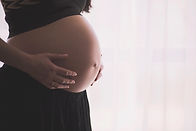
What is a doula?
Nurturing Birth describe a doula as "an experienced person who offers emotional and practical support to a woman (or couple) before, during and after childbirth....Thus enabling a woman to have the most satisfying and empowered time that she can during pregnancy, birth and the early days as a new parent".
In "The Positive Birth Book" Milli Hill describes a doula's role as "to simply make you feel like a goddess, no matter where or how you want to or have to give birth"
Equally important is knowing what a doula is not! A doula is not medically trained, does not take a clinical role or offer medical advice or diagnosis.
Research on doulas
There is an increasing amount of research and studies available on doulas. Notably, the Cochrane Review on Continuous support for women during childbirth in 2007 involving over 13,000 women. This review found that "Women who had continuous intrapartum support were likely to have a slightly shorter labour, were more likely to have a spontaneous vaginal birth and less likely to have intrapartum analgesia or to report dissatisfaction with their childbirth experiences"
In 2008 Nurturing Birth carried out a survey comparing data given to them by birth doulas with national NHS maternity statistics. The results supported previous research that doulas reduced the length of labour, the need for anesthesia, and the likelihood of cesarean or instrumental delivery, and greatly increased the breastfeeding rates at birth and six weeks postpartum.
Nurturing Birth repeated this survey in 2013 and again the results indicated that the presence of a doula provides many benefits.
A Survey of doula supported births in 2013 in the UK. Sophie Brigstocke. MIDIRS Midwifery Digest 2014
Doula supported births
12.5%
26.3%
15%
81.4%
National Average
25.5%
2.4%
62.9%
47.2%
% births which ended in caesarean section
% Home births
% Epidural update
% Breastfeeding at 6 weeks
Doulas believe in "mothering the mother"
Doulas are not medically trained

